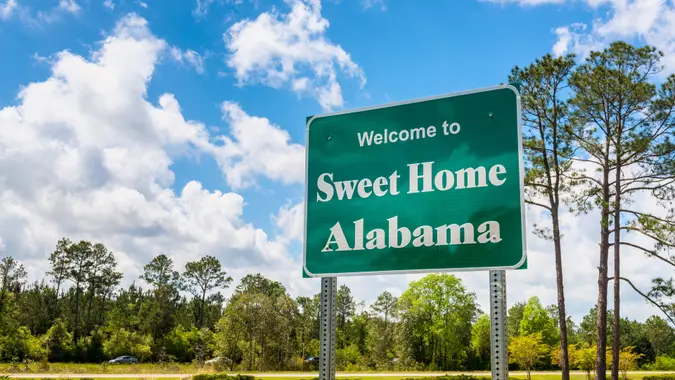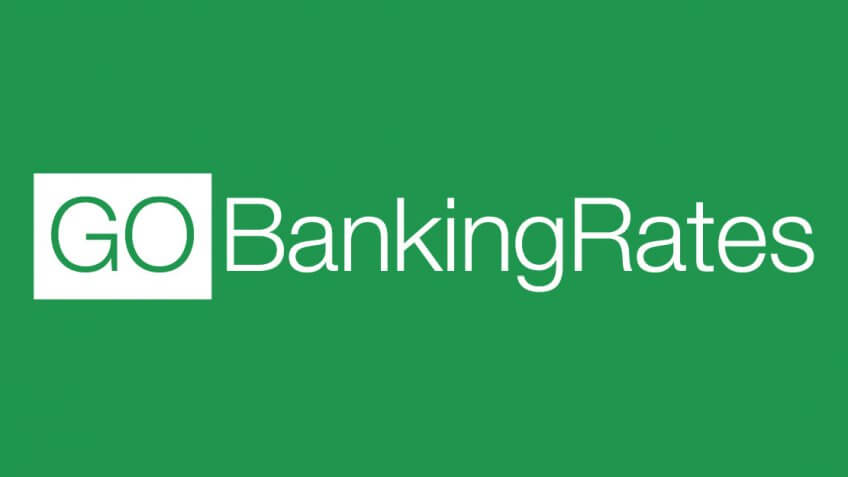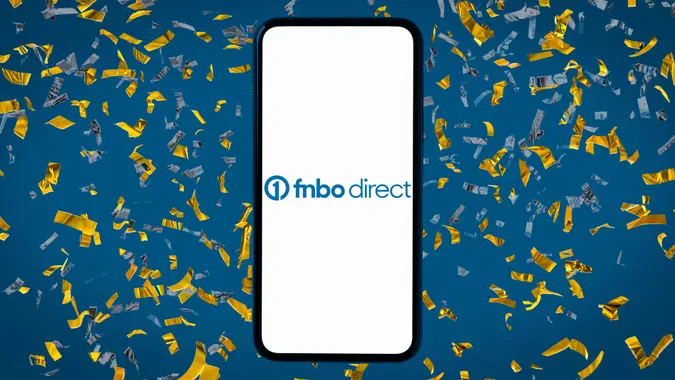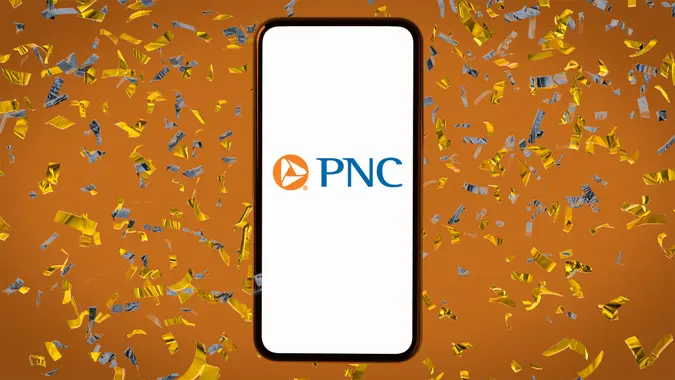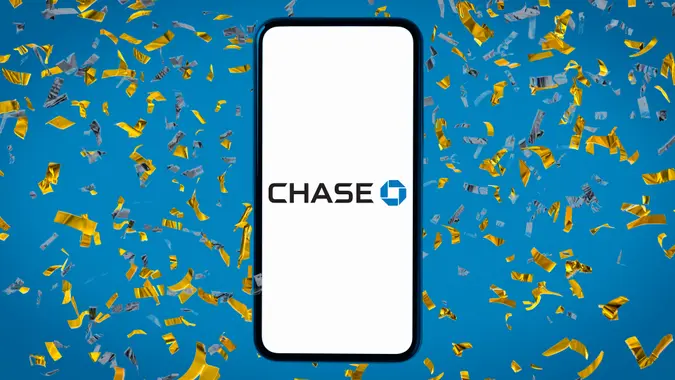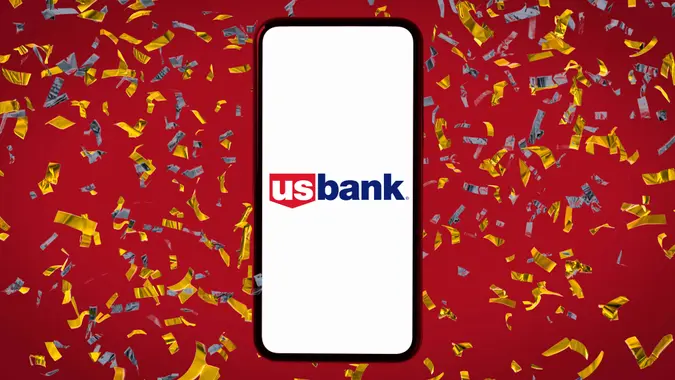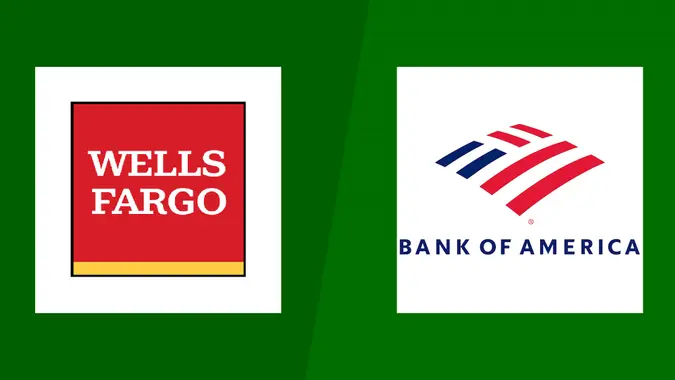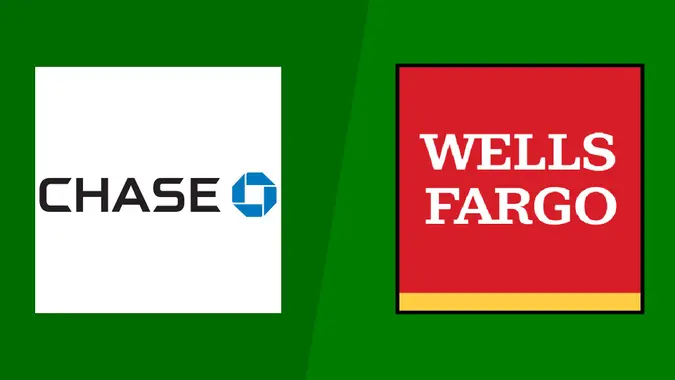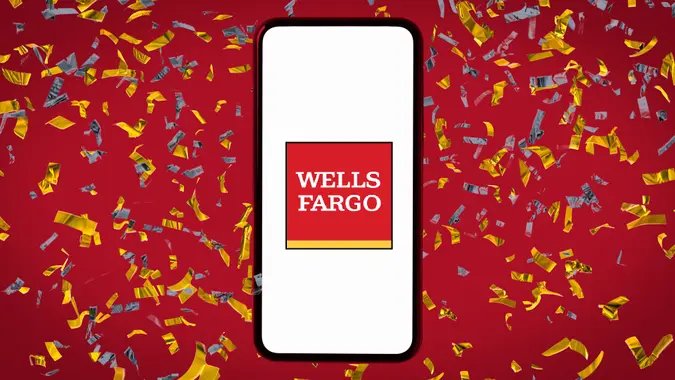8 Best Banks in North Carolina

Commitment to Our Readers
GOBankingRates' editorial team is committed to bringing you unbiased reviews and information. We use data-driven methodologies to evaluate financial products and services - our reviews and ratings are not influenced by advertisers. You can read more about our editorial guidelines and our products and services review methodology.

20 Years
Helping You Live Richer

Reviewed
by Experts

Trusted by
Millions of Readers
North Carolina boasts a growing population and a flourishing economy. National banks, smaller community banks, regional banks and credit unions serve both individual and business customers. A resident searching for banking services in Raleigh, Charlotte or any other city in North Carolina has dozens of options available.
8 Best Banks in North Carolina
Choosing the right bank involves matching individual needs to the financial institution’s strengths, whether that means low fees, convenient checking, physical branch availability, or readily available and helpful customer service. The era of digital banking also means customers researching banks may want to consider online platforms, which vary in their features and ease of use.
GOBankingRates has based its rating on the following key metrics and considerations:
- Availability of branches and network ATMs
- Savings and checking account options
- Customer service options offered
- Savings account APY
- Products and services
Here are some of the best banks in North Carolina based on these metrics:
- Chase
- Bank of America
- Wells Fargo
- Truist Bank
- First Horizon
- PNC Bank
- First Citizens Bank
- Capital One
1. Chase
The largest national bank when measured by total assets, Chase is the commercial and consumer banking arm of New York-based financial services firm JPMorgan Chase & Co., which holds $3.89 trillion in operations and assets. The company began its retail banking operation in North Carolina in 2019, swiftly building a statewide network of branches and ATMs in the years that followed.
Chase is a good choice for customers looking for a full-service bank with a nationwide branch system. An account with Chase also gives customers easy access to the bank’s popular line of credit cards. The bank also provides a wide range of loan products, including mortgages, auto loans and insurance services.
Pros:
- Customer service line, which operates 24/7
- Wide range of products and services, including commercial and wealth management
- Mobile platform offering Zelle person-to-person payments and other conveniences
- Overdraft protection that eliminates overdraft fees on checks
Cons:
- Interest rates on Chase savings accounts and CDs are on the low side
- Checking account monthly fees as high as $25
- Not engaging in overdraft protection will cost you, as overdraft fees are steep
2. Bank of America
Headquartered in Charlotte, Bank of America, Member FDIC, is one of the biggest national banks in the U.S. and has several branches throughout its home state of North Carolina. It has expanded through several big mergers over the years, branching into new communities in the Tar Heel State.
The Bank of America Advantage SafeBalance Banking® checking account is worth considering for those under 25, who can avoid monthly maintenance fees and overdraft charges. Advantage Plus Banking® account holders can avoid a $12 monthly fee by having one direct deposit of $250 or more or a daily balance of at least $1,500. Advantage Relationship Banking® accounts earn interest but require a $20,000 balance to avoid its $25 monthly fee.
Pros:
- Large network of ATMs and physical branches in North Carolina
- Keep the Change automatic savings program that rounds up debit card purchases and saves the change
- Mobile and online platforms with robust security features, including a personal photo on the debit card
- Self-directed brokerage accounts available through Merrill Edge
Cons:
- Low interest paid on savings accounts, typical of a big bank
- A confusing system of overdraft and monthly fees that can be costly
- No high-yield savings accounts are available
3. Wells Fargo
Wells Fargo has a strong presence in North Carolina with over 230 branches. In 2008, the California-based bank acquired Wachovia in one of history’s largest bank mergers. The merger allowed Wells Fargo to gain a broader foothold in North Carolina, where Wachovia had been based.
Anyone 24 years of age or younger can avoid the monthly fee for Wells Fargo’s Clear Access Banking account. Teens as young as 13 can open these accounts with an adult sponsor. The Everyday Checking account waives a $10 fee for a $500 minimum daily balance or $500 in direct deposits, and it also waives the fee for account holders ages 17 to 24.
Pros:
- Branches throughout North Carolina
- A full suite of financial services available, including standard savings and checking, retirement accounts, credit cards, certificates of deposit and brokerage services
- Wide range of consumer and business loans
- Personal financial advisors to consult with customers on their money issues and savings goals
Cons:
- Low interest on its savings accounts
- Hefty overdraft fees that can quickly run a low-balance checking account into the red
- A $2,500 minimum set on certificates of deposit, putting them out of reach for some low-income savers
4. Truist Bank
Banking customers who want to bank locally typically turn to Truist Bank, a regional bank that’s headquartered in Charlotte — the result of the merger between BB&T and SunTrust. Truist has over 200 branches and ATMs throughout the Tar Heel State.
Truist checking offerings include the Fundamentals account, with a low minimum of $50 and a flat fee of $5 a month. The fee is waived for Bright accounts as long as the customer keeps a $1,500 average balance or direct deposits of at least $500 a month.
Pros:
- A good variety of checking accounts tailored to customers with different financial and life profiles
- Accounts geared to students, seniors, and employees of certain companies who have joined the bank’s BB&T@Work checking plan
- Health savings accounts, with which depositors can save tax-exempt money for medical expenses
Cons:
- Relatively low interest on its savings accounts
- Steep overdraft fees
- Maintenance fees on the checking accounts can also get expensive if they aren’t carefully monitored for the required minimum balances
5. First Horizon
Tennessee-based First Horizon Bank is a regional financial institution with 92 branches across North Carolina. First Horizon offers a full range of banking products and services to its customers.
SmartView Checking, First Horizon’s middle-tier account, charges a $15 monthly fee that is waived for a combined minimum $25,000 balance in savings, checking, IRA and money market accounts. When these conditions are met, bonus interest is paid to the checking account.
Pros:
- One of the industry’s more user-friendly account platforms
- The app offers budgeting, financial planning services, money transfer, bill pay and mobile deposit
- Four varieties of no-fee credit cards, which a holder can link to a checking account to protect against overdrafts
Cons:
- First Horizon sets different conditions on waiving monthly checking account fees, making the whole process of choosing an account challenging
6. PNC Bank
PNC is a big bank that originated in the merger of two Pennsylvania companies, Pittsburgh National and Provident National. It has hundreds of branches throughout the Tar Heel State.
PNC offers Virtual Wallet®, which bundles together primary and secondary checking accounts and a savings account. Virtual Wallet’s features include Low Cash Mode, which allows account holders to choose or return payment on some transactions and gives a 24-hour grace period to get negative balances back to black before an overdraft fee kicks in.
Pros:
- Out-of-network ATM fees can be waived
- Cash back up to 5% offered on some debit card transactions
- PNC Pay on Android devices offered as an alternative to debit and credit cards
Cons:
- Smaller network of ATMs compared to big national banks
- High overdraft fees
7. First Citizens Bank
Raleigh-based First Citizens Bank is a subsidiary of First Citizens BancShares Inc., which merged with CIT Group in January 2022, making it the largest family-owned bank in the country. First Citizens Bank is highly accessible, with over 500 locations across the Tar Heel State. First Citizens’ merger with CIT allows it to offer significantly higher savings rates to digital-only customers.
Pros:
- Broad geographic presence across North Carolina
- Full range of banking services, including business loans and wealth management
- Community association banking, equipment and vendor financing
- Community reinvestment programs serving low- and moderate-income borrowers through small business lending and affordable housing
Cons:
- Relatively low rates of interest on its savings accounts
- The bank also charges fees when checking balances don’t meet minimums, which can be avoided in higher service tiers
8. Capital One
A banking offshoot of card issuer Capital One Financial Corp., Capital One offers a full-service financial experience that includes physical branches in some cities, a strong digital presence and services that go beyond basic bank accounts. This Virginia-based bank has no Capital One Cafés or bank branches in the Tar Heel State. However, Capital One does offer several fee-free Allpoint and MoneyPass ATMs throughout the Raleigh-Durham area.
Capital One’s 360 Checking allows full-service mobile banking and eliminates overdraft fees. Users can instantly lock and unlock their linked debit cards through the mobile app in case of loss or theft.
Pros:
- No fees charged on checking or savings accounts
- Rates paid on savings accounts and CDs are competitive
- The bank gets good ratings for its mobile app
- An intriguing chain of Capital One Café locations offering a space to unwind, bank and enjoy crafted food and beverages
Cons:
- Expanding but still limited physical presence
Final Take To GO: Choosing the Right North Carolina Bank
North Carolina is one of the country’s most important banking centers in the U.S., with Charlotte serving as the country’s second-largest financial center after New York City. While everyone’s banking needs vary, customers have several personal and commercial banking options to consider in the Tar Heel State.
Caitlyn Moorhead contributed to the reporting for this article.
GOBankingRates is a personal finance and consumer interest rate website and an online marketing company serving top-tier banks, credit unions and other financial services organizations. Some companies mentioned in this article might be clients of GOBankingRates, which serves more than 100 national, local and online financial institutions. Rankings and roundups are completely objective, and no institution, client or otherwise, paid for inclusion or specific placement. Any opinions, analyses, reviews or recommendations expressed in this article are those of the author alone and have not been reviewed, approved or otherwise endorsed by the companies included in the article. All fees and rates are subject to change at the issuers’ discretion. Some interest rates might be short-term or promotional offers only, and it is possible additional terms and conditions must be met to obtain the interest rates listed. Rates and availability might vary by region. Verify terms and conditions before opening an account.
GOBankingRates bases its assessment of “best” and “top” products on the above-stated parameters to create a baseline for comparison. This assessment is an approximation of “best” and “top” designed to help consumers find products that might be appropriate for them. There could be other options available as well. Consumers should consider various options appropriate for their circumstances.
*With Chase Overdraft AssistSM, Chase won’t charge an insufficient funds fee if you’re overdrawn by $50 or less at the end of the business day, or if you’re overdrawn by more than $50 and you bring your account balance to overdrawn by $50 or less at the end of the next business day (you have until 11 p.m. ET, or 8 p.m. PT, to make a deposit or transfer). Chase Overdraft Assist does not require enrollment and comes with eligible Chase checking accounts.
Editorial Note: This content is not provided by any entity covered in this article. Any opinions, analyses, reviews, ratings or recommendations expressed in this article are those of the author alone and have not been reviewed, approved or otherwise endorsed by any entity named in this article.
Editorial Note: This content is not provided by Chase. Any opinions, analyses, reviews, ratings or recommendations expressed in this article are those of the author alone and have not been reviewed, approved or otherwise endorsed by Chase.
 Written by
Written by  Edited by
Edited by 




